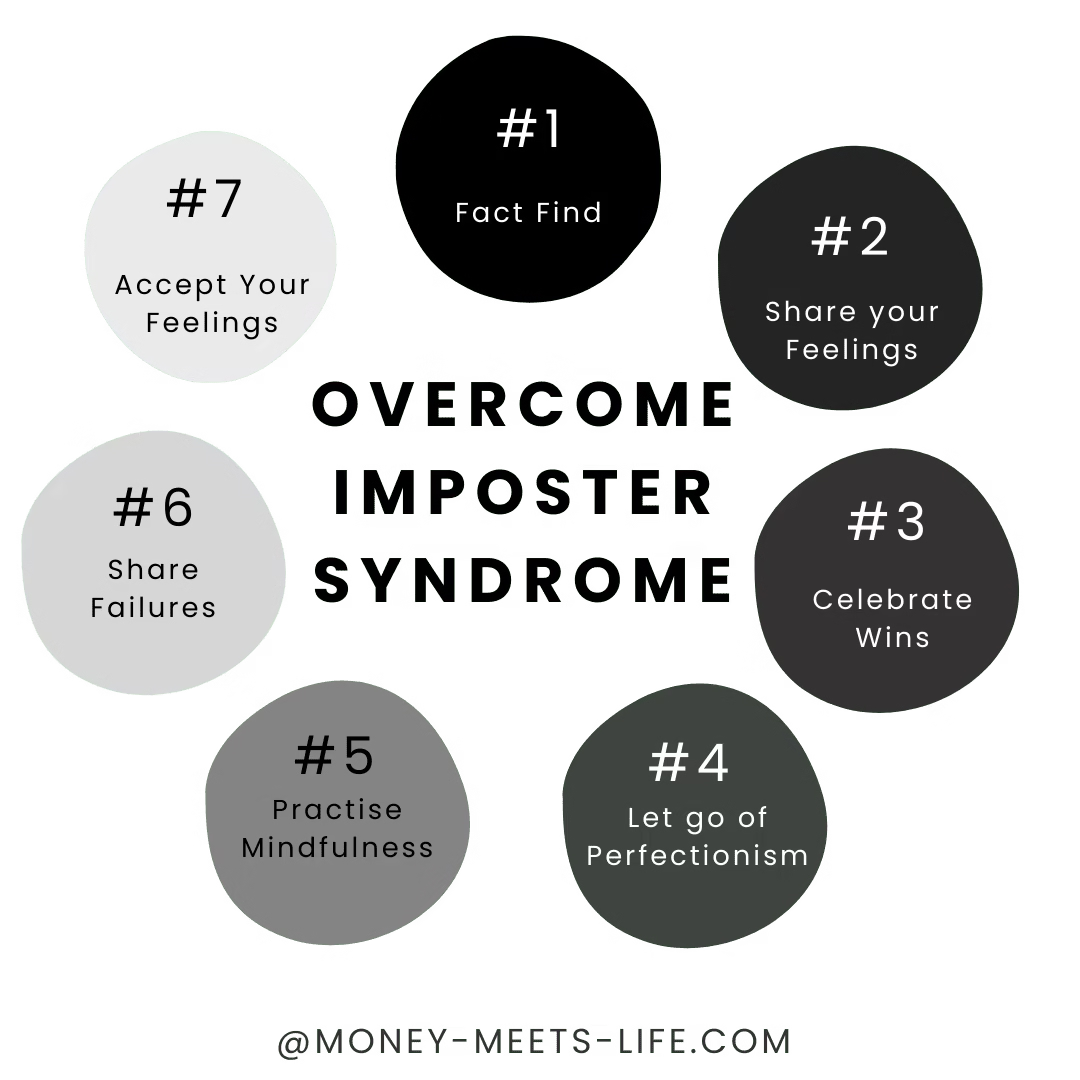What is Imposter Syndrome?
You might have heard the term, “imposter syndrome” before, but what does it mean? How can you conquer these feelings?
Imposter syndrome is the feeling that we get when we feel incompetent in a field.

“I have written 11 books, but each time I think, ‘uh oh, they’re going to find out now. I’ve run a game on everybody, and they’re going to find me out.”
– Maya Angelou, Poet and Writer
From my perspective, I have been a tutor for more than 10 years, and I had to fight imposter syndrome constantly. Despite the fact that I knew subjects really well, I, at first really doubted my ability to teach them.
We tend to be our own worse enemies. Sometimes, even though we have built up a level of mastery in a certain field, it can be difficult to show what we know and confidently market our ability to others.
In this blog, I will break down how you can conquer those feelings of inadequacy and gain the confidence to feel like you belong.
The Roots of My Imposter’s Syndrome
I’ve thought long and hard about where my feelings of inadequacy originate.
Why do I always feel like an amateur?
Thinking back to my childhood, perhaps these feelings are rooted in the way my father talked to me.
Bear in mind, however, that I do not hold any resentment towards him. Every father has their faults. We have to be stoic in our attitude towards the words of others and reframe them appropriately.
I remember that often, when I achieved something, my father would always say something that would fill me with doubt about my abilities.
For instance, when I expressed that I wanted to be an author, he said that I do not write “well enough”. When I wanted to be a lawyer, he said I was not “smart enough”, and “couldn’t handle the workload”.
When I wrote my first novel at 19 (never published), he said I needed to read more before trying to write a novel and didn’t have the talent compared to other writers.
Rationalisation Process
I’ve found, in time, that I was able to realise something about why my father had no confidence in me.
It was, I believe, down to him projecting his own insecurities onto me. Many parents do this. I’ve seen it time and time again in tuition.
For example, I’ve had female students (it happens most with girls) who struggle in mathematics, and the parent saying something like, “I struggled in mathematics in school, and she is just like me. She is bad at maths.”
I realise that this becomes somewhat of a self-fulfilling prophecy, and the parent’s insecurities and inadequacies become the child’s.
I believe that part of the process to overcoming this imposter’s syndrome for me was discovering the source. Furthermore, taking a bit of time to analyse the source and reframing it in my mind pushed me past feelings of inadequacy.
How to Overcome Imposter’s Syndrome
So that was a bit about my personal triumph over these feelings. I hope you got something out of it, however, if not, I will talk about how anyone can conquer these feelings of inadequacy according to my research.

I found this article on how to overcome imposter syndrome really helpful, and I’ve broken down some of their research below:
Tip #1 – Fact Find
Acknowledge your achievements by reflecting on the hard work and accomplishments that have shaped your journey to your current role. Take a moment to consider the years of dedication and learning that underline your professional growth.
You might like to read my blog on the “Shadow Self”.
As you navigate impostor feelings, envision being a supportive advisor to a friend facing self-doubt. Extend this compassion to yourself, using encouraging language to reshape your own narrative and affirm your capabilities.
To combat negative thoughts, personally challenge their validity and focus on concrete evidence that contradicts any impostor beliefs. Recognise your educational milestones, accumulated experience, and the evident growth in your skills over time. You may have qualifications that you worked hard to achieve over the years, or have social proof and testimonials which can demonstrate to yourself that you have certain skills.
This personal inventory serves as a robust foundation, demonstrating your competence and dispelling doubts. Break free from the cycle of self-doubt, cultivating confidence and self-affirmation in your professional identity.
Tip #2 – Share your Feelings
To overcome impostor feelings, experts such as Vandelan recommend seeking support from others.
Sharing such feelings can reduce loneliness and open doors for reciprocal sharing. However, it’s advised to be strategic about whom you confide in, as discussing impostor struggles with peers may lead to unhealthy comparisons.
For those with underrepresented identities, connecting with empowering communities can provide validation and empathy in navigating impostor phenomena within oppressive systems. Focusing on safe relationships and seeking therapy are also recommended if impostor feelings significantly affect one’s well-being.
I have certainly found that attending therapy sessions has been a very useful exercise for me. Talking with friends sometimes can make things feel uncomfortable, or make it feel as if they are just saying the words I want to hear. What my friends say may even be true, but my mind somehow puts more credence on the words of an outside party than them.
Tip #3 – Celebrating Wins
People grappling with impostor feelings often downplay their achievements, worsening the experience. To counter this, experts recommend acknowledging and celebrating successes.
When praised, take a moment to respond positively and internalise accomplishments, whether gaining credentials, publishing a paper, or having a successful client session. Reflecting on efforts is beneficial, and tangible reminders such as saving positive feedback emails can serve as concrete affirmations of competence.
Even small achievements collectively contribute to portraying oneself as a capable and high-functioning professional. I must admit that I struggle with this one and find it difficult to celebrate my successes. I didn’t even attend my Master’s graduation, because I was disappointed not to have achieved a distinction.
Tip #4 – Letting go of Perfectionism
It would be easily possible to write a whole post about perfectionism, and how it can be detrimental to our development. In many ways, it is simple to understand this point but, so challenging to correct.
Adjusting standards for success can alleviate impostor feelings. Instead of pursuing perfection, focus on progress and accept that in some situations, being “good enough” is satisfactory.
Viewing failures as opportunities for learning and growth, rather than exposures, can shift perspective and contribute to eventual success.
Releasing oneself from rigid roles, such as the constant helper, allows for more comprehensive personal and professional development.
As someone who has worked in education for a long time, I constantly have to remind students to focus on productivity over perfectionism. Some children spend too much time making sure that everything is perfect and this can hamper their development.
Perfectionism is Complex
I actually think that people tend to oversimplify the relationship between perfectionism and success. Perfectionism in of itself won’t necessarily breed success, but I do believe some aspects of perfectionism lead to success.
For instance, imagine if Edison had stopped the development of his lightbulb before it was capable of staying on for more than a few minutes, it would have resulted in complete failure. His persistence in redesigning the filament so that it was composed of carbon, is what contributed to its ultimate viability as a product.
In some of the academic literature, the link between perfectionism and success is not presented straightforwardly. The perfectionist needs to learn not to allow failures to paralyse him or her, and utilise the positive elements of perfectionism to gain success.
Tip #5 – Mindfulness
Practising self-compassion through mindfulness can counteract impostor feelings by shifting from an external to an internal locus of self-worth.
Recognising and observing when these feelings arise and responding mindfully helps break the cycle of the impostor phenomenon.
For underrepresented individuals facing systemic barriers, acknowledging these challenges while separating accomplishments from personal value is crucial.
Tip #6 – Sharing Failures
The modern world is a particularly dangerous place.
We always see the results of someone’s efforts rather than what that person does to achieve those successes.
I’ll give you an example that is close to home. I went to school with Paapa Essiedu, who is now a famous actor noted for his roles in Hamlet (the first black Hamlet for the RSC), I May Destroy You, a role as the demon, Gaap, in the Netflix Black Mirror, Gangs of London, etc.
To everyone watching, who didn’t attend school with him, we only see the current Paapa. We never see the battles he had to face growing up, or just how hard he worked in school and beyond that.
My friend, Prajay, whom I currently own a business with, told me that when he first met Paapa, he wouldn’t even talk, and yet he ended up as a successful actor.
How was he able to overcome such paralysing shyness?
We simply don’t see what people do to achieve what they go on to achieve.
Solving this Issue
It is possible to build our resilience to this by being open about failure. Hearing about other people’s failures on the way to achieving success, and outright failures is one of the keys to dispelling those false feelings of incompetence.
Participating in group settings where people share their failures collectively can be particularly beneficial. These group discussions create a supportive environment where individuals feel understood and accepted.
The act of sharing failures can cleanse spirits by fostering a sense of camaraderie and mutual understanding. This shared vulnerability not only reduces the isolation often felt by impostor phenomenon but also provides an opportunity for collective learning and growth.
By encouraging an open dialogue about failure and creating spaces for shared experiences, individuals can develop a healthier perspective on success and failure. This, in turn, helps in building resilience, fostering a more positive mindset, and ultimately combating impostor feelings.
Tip #7 – Acceptance
Accepting that these feelings can and will sometimes arise, is an important step in mastering your emotions. It is a natural and unconscious process, and by bringing these feelings to the front of your mind and reflecting on them you can build your resilience to these feelings.
Conclusion
We all get those moments when we question our awesomeness, but guess what? It’s normal, and even the great Maya Angelou felt it too!
Whether you’re acing subjects, building a business, networking, or conquering your fear of leading classes like me, celebrating wins, big or small, is a must. Progress over perfection is the name of the game – failure is just a pit stop on the road to success.
So, embrace the imperfections, laugh off those impostor feelings, and remember, you’re not alone in this journey. Let’s learn from each other, celebrate the wins, and enjoy the adventure together!
References
John Mathew Smith & www.celebrity-photos.com from Laurel Maryland, USA, CC BY-SA 2.0 https://creativecommons.org/licenses/by-sa/2.0, via Wikimedia Commons
If you enjoyed this blog, join my mailing list for other posts like this one:


